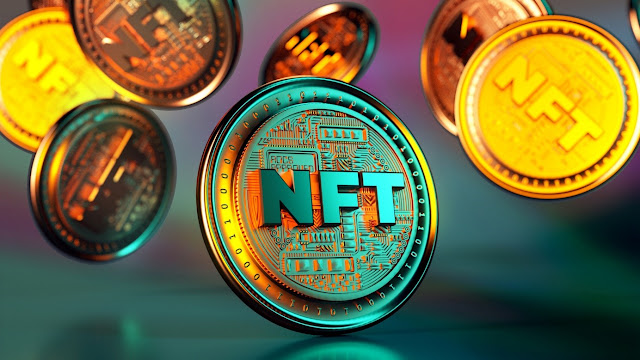Best NFT Wallets For Your Collection: Differences Between NFTs and Cryptocurrency
We can all agree
that cryptocurrencies are strange and overwhelming for people who do not know
too much about them. Implementing blockchain technologies created a completely
different perspective on how we view the Internet.
For instance,
during the early years of the Internet, people started using it with
excitement, and skepticism, while some feared the ability to connect with an
entire world. The same thing works for blockchain-based technology because we
share a similar feeling about something new and complex.
You should check
out this guide: https://nftpay.xyz/best-nft-wallets/
to learn more about NFT wallets and their implementation throughout the web.
Generally, two
unknowns in the world of blockchain technology are NFTs and cryptocurrencies,
which is why you should understand the similarities and differences. Besides,
understanding blockchain is essential for keeping up with the latest options,
meaning you should stay with us to understand each step.
Let us start from
the beginning.
A Brief Guide to Blockchain
It is vital to
remember that blockchain technology is a data management and sharing system. It
will allow you to control and store the data by using a network of users
instead of centralized intermediaries in the form of large corporations.
Therefore, blockchain-based technology can help us implement new ways of the
Internet.
It would be best
if you understood blockchain as a shared record of data transactions and
digital collections, similar to a public ledger. Still, individual transaction
records and data go into blocks linking the chain.
You can add the
transaction to the blockchain using the distributed system for verification.
The more verifying nodes within the system, the more significant security you
will get. Therefore, the content must undergo confirmation by all involved
parties to complete the process.
Compared to Apple
or Google, which use a single system, meaning someone can breach it and gain
control over data regarding the blockchain ledger, it is challenging to do it
because you must control a wide array of computers to make a single alteration.
Therefore, you will get a highly secure option that will offer you peace of
mind.
As a result, you
will get a technology that will offer you decentralized transactions. At the
same time, two essential types that go through blockchain are NFTs and
cryptocurrencies. They feature similarities in interactions but are different,
which is essential to remember. You should click here
to learn more about non-fungible tokens or NFTs.
Cryptocurrencies
You should know
that cryptocurrencies are digital currencies that come in the form of digital
tokens that feature security through cryptography. Therefore, they are
protected and impossible to counterfeit or double-spend.
Security comes from
many processes, including public-private key pairs, encryption algorithms, etc.
Still, you can consider them as a digital form of money, or digital tokens,
while Bitcoin's most prominent.
Both Ethereum and
Bitcoin feature separate blockchain systems, while we can differentiate
thousands of cryptos available on the market through numerous blockchain
platforms.
Generally,
everyone can sell or purchase cryptos by using decentralized exchange
platforms. Still, you will need a place to store your money, meaning you should
set up a crypto wallet before purchasing. You can use it to purchase online
things, while some people invest in it to gain a high return, which can happen
due to volatility.
Non-Fungible Tokens or NFTs
Similarly, as
cryptocurrencies, we are talking about digital tokens or assets. However,
currencies feature a fungible aspect, meaning you can use them interchanging,
while NFTs are unique and singular. As cryptos, they require cryptographic
assets and blockchain technology to function.
The main
difference between unique physical objects and physical currency is the
uniqueness you will get with NFTs. Since cryptocurrencies are fungible, you can
have any amount in your digital wallet, which will feature the same function
and value as someone else who has the same amount.
At the same time,
you should consider a specific physical object unique to you. It could be a
collector item such as stamp or baseball card, a first edition comic book
signed by authors, or many more. Generally, you cannot copy or buy it because
it features emotional and intrinsic value.
These items are
non-fungible, meaning you would probably refuse if someone asked you to trade
the first-edition comic for a fifth-edition reprint without a signature.
Although we discuss the same comic, they do not feature interchangeable values.
NFT means you have
a unique asset with monetary value that can come in the form of an e-book, JPEG,
and many more. Therefore, if your NFT is JPEG, it is yours, meaning if someone
decides to download or screenshot it, the public blockchain will verify the
counterfeiting process.
The best way to
understand how NFTs function is through a psychological perspective. Generally,
JPEG format can be unique, but only if you have an emotional attachment to it.
Differences Between NFTs and Cryptocurrencies
Similarly, as
mentioned above, cryptocurrencies are digital money we can use to purchase
assets, while NFTs function as unique digital assets you can use for numerous
purposes. For instance, if a photographer decides to share an image on an
Instagram account, the photo becomes viral and highly popular through numerous
social media accounts.
The process of
sharing comes without monetary compensation and credit to a photographer, which
means it becomes everyone's.
However, a
photographer can authenticate the original image as a non-fungible token if we
use blockchain technology. It means you can upload it to blockchain
infrastructure and certify it as unique, featuring a digital signature.
When a particular
image gets a digital footprint,
anyone can see it, but it will be authentic and original, meaning no one can
download or use it. Therefore, you can put it on sale, meaning someone can buy
it by using cryptocurrency based on the value you set.
As soon as someone
purchases the image, similar to a painting, it becomes theirs, but it will
still feature your signature as an artist, which is the perfect way to protect
it and share your name across the web.




